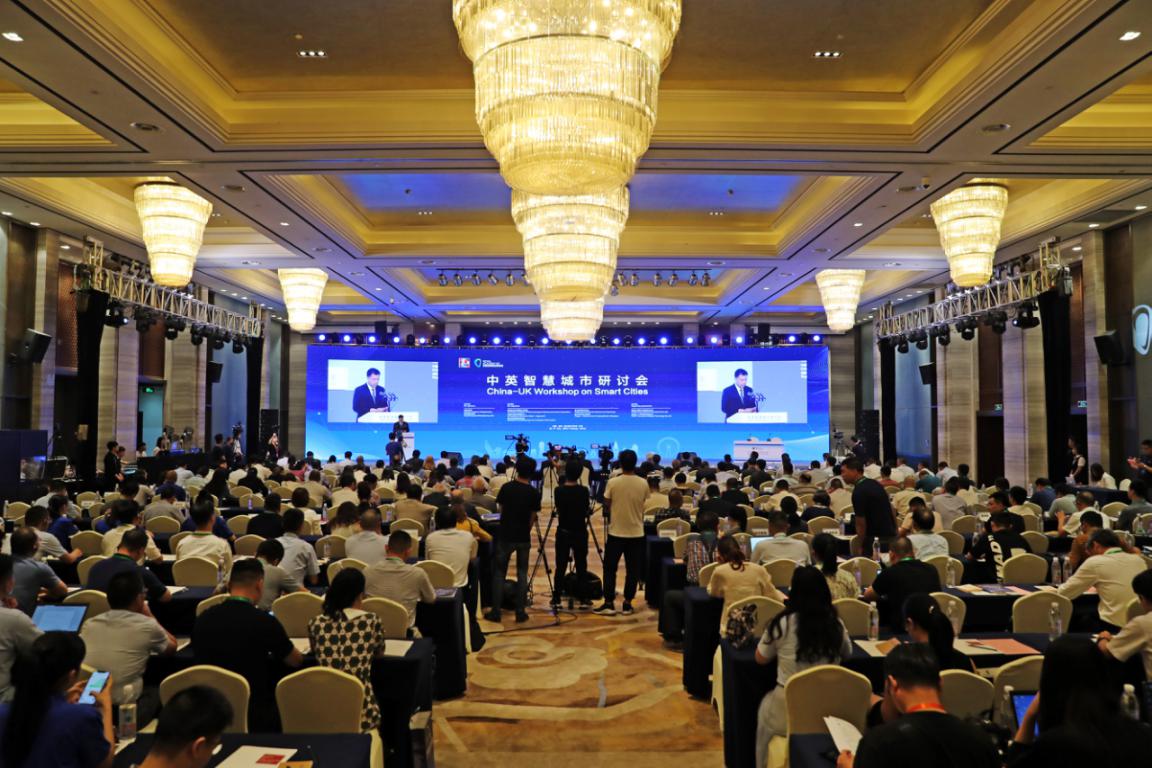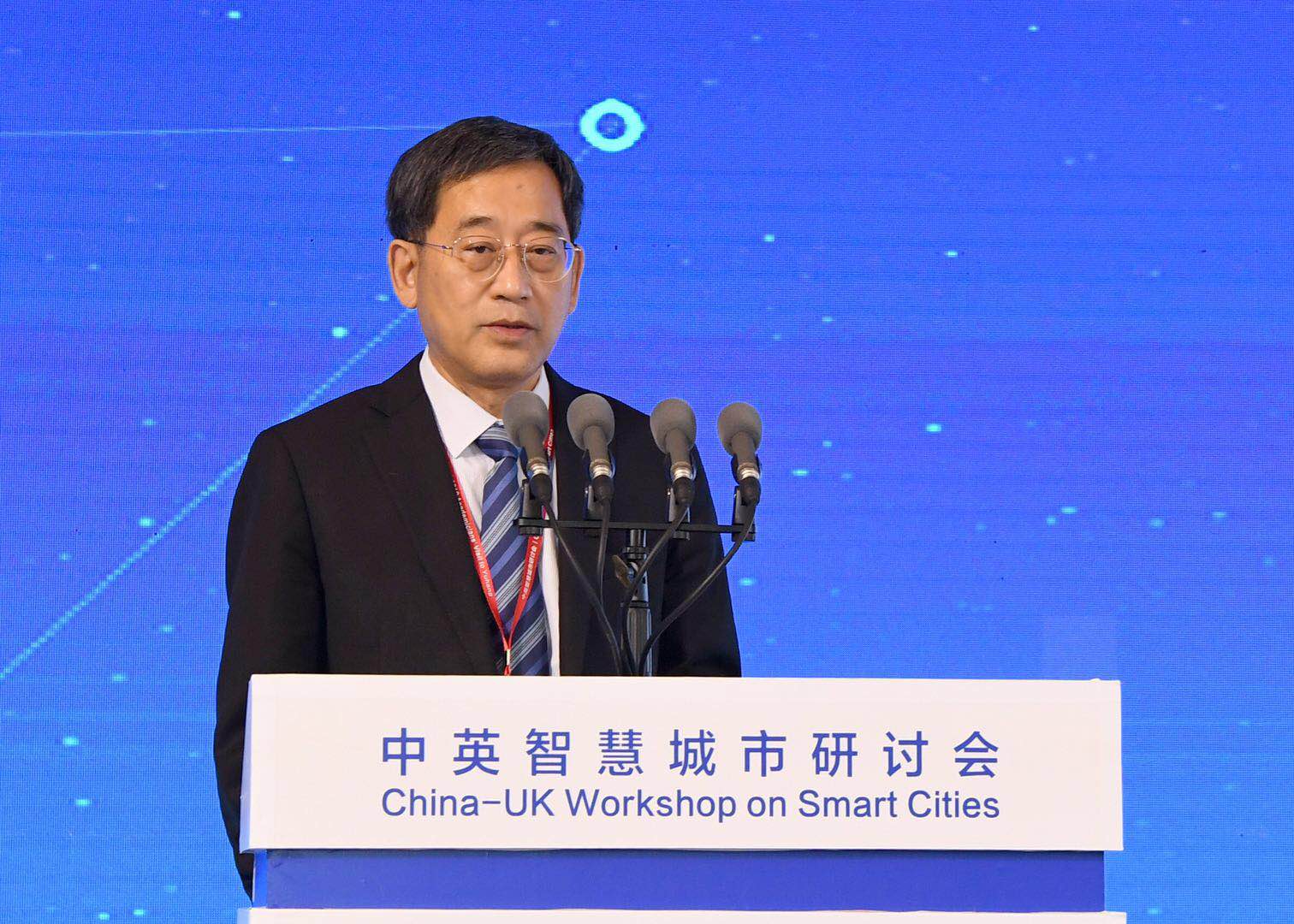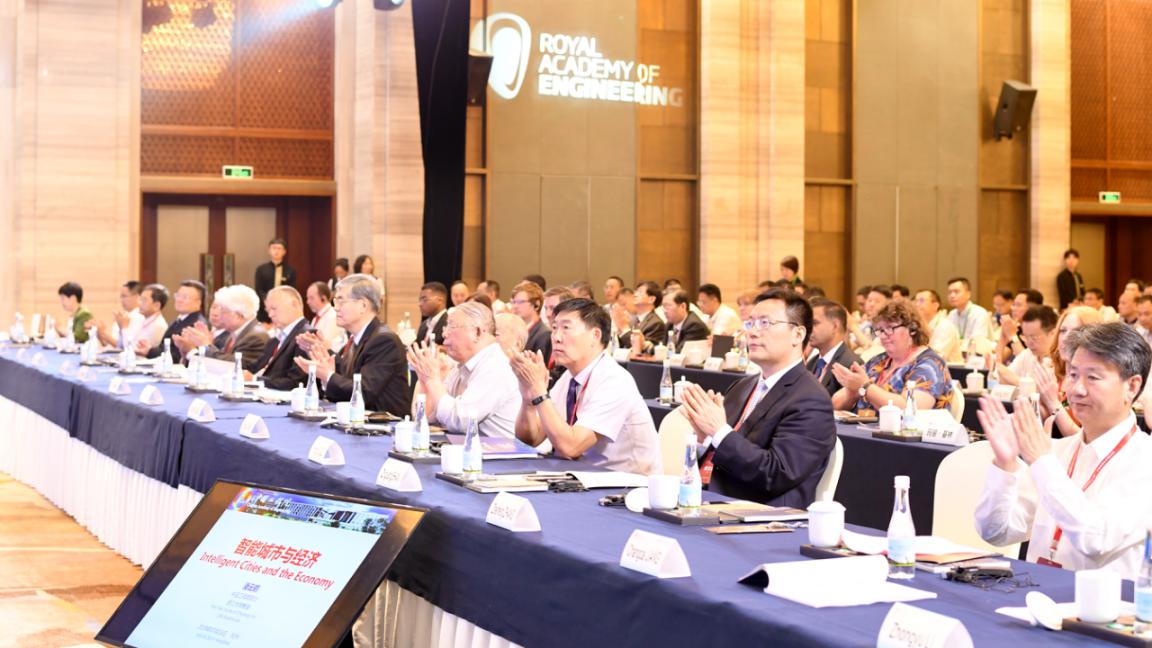How "smart" will cities be in the future? Academicians and experts from the Academy of Engineering told you this.
Cctv newsTen days ago, the site of Liangzhu Ancient City, located in Yuhang District, Hangzhou, Zhejiang Province, was listed on the World Heritage List by UNESCO and became the 55th World Heritage Site in China. Ten days later, in this ancient and modern land, a grand seminar on smart cities was held here.

(Photography Wang Jue)
Chinese and foreign experts and scholars from afar, around the "smart city technology application — Challenges and Solutions ",and conducted in-depth discussions on five aspects of smart city development technology application, standard function and implementation mode, sustainable development, capacity building, smart city and future community. Five academicians from China Academy of Engineering, including Pan Yunhe, Zhongshan, Zhou Liwei, Wu Zhiqiang and Chen Jing, as well as more than 30 Chinese and foreign technical experts, gathered together to make suggestions for the future construction of smart cities.
Academician Pan Yunhe pointed out in his keynote speech that with the development of informatization, the spatial model of human beings has gradually changed from binary space (human society and physical space) to ternary space (human society, physical space and information space), and the new change model of information flow formed by spatial change has led to new changes in cognition. Nowadays, many regions are exploring new modes of regional economic development. The common development of China’s urban economy and urban construction is bound to promote the co-evolution of cities and economies. In the future, China’s urban development not only shoulders the heavy responsibility of management, but also shoulders the comprehensive goals of industrialization, urbanization, informationization, greening and agricultural modernization.
Academician Wu Zhiqiang said that artificial intelligence city technology has been applied in many fields. The new generation of artificial intelligence city developed by their team is supported by the latest database tool "City Tree", which trains the city simulation system "City Go" with machine learning technology, and develops a series of deduction tools for artificial intelligence city planning. At present, it has played an important role in the planning and operation of the first artificial intelligence town.
As one of the organizers of this seminar, Quan Chunlai, former vice president of the Second Research Institute of China Aerospace Science and Industry Group, and Zhou Xiang, chairman of Aerospace Science and Industry Smart Industry Development Co., Ltd. made speeches as special guests.

(Photography Li Wei)
In the report entitled "Smart Public Safety Case", Quan Chunlai analyzed the urban development trends and problems in China, and pointed out that public safety risk management and emergency management have become the new normal. He said that new technologies, such as big data and artificial intelligence, can greatly improve the ability of risk management and emergency rescue, and shared the application practice of information technology in monitoring, early warning and disposal of urban underground pipelines in the Second Aerospace Institute.
Zhou Xiang took the construction of Suzhou Smart Taihu New City as an example, and comprehensively demonstrated the comprehensive and open smart city system from the Internet of Things perception foundation to the urban operation big data platform and comprehensive operation exhibition center, as well as smart pipe network, smart transportation and smart environment monitoring. The smart city system realizes accurate perception, rapid analysis, efficient processing and comprehensive display of the comprehensive operation of Taihu New Town, which embodies the deep integration, innovation and transformation of information technology and infrastructure. He believes that the construction of smart cities needs to be explored and practiced in six aspects: overall design, integration and sharing, integration of industrialization and modernization, three-dimensional space, innovative management and standardization.

(Photography Jin Honghua)
During the seminar, the participating academicians and experts held discussions and exchanges around the construction of Yuhang smart city, and held a round table meeting to discuss the results of the seminar and the relevant mechanisms to promote the development of smart city.